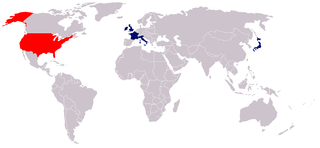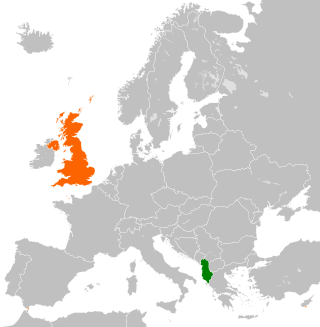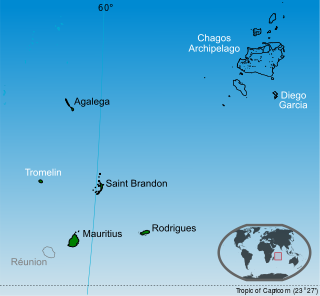| |||||
| Decades: | |||||
|---|---|---|---|---|---|
| See also: | Other events of 1947 List of years in Albania | ||||
The following lists events that happened during 1947 in the People's Republic of Albania .
| |||||
| Decades: | |||||
|---|---|---|---|---|---|
| See also: | Other events of 1947 List of years in Albania | ||||
The following lists events that happened during 1947 in the People's Republic of Albania .

The United Nations Security Council (UNSC) is one of the six principal organs of the United Nations (UN) and is charged with ensuring international peace and security, recommending the admission of new UN members to the General Assembly, and approving any changes to the UN Charter. Its powers as outlined in the United Nations Charter include establishing peacekeeping operations, enacting international sanctions, and authorizing military action. The UNSC is the only UN body with authority to issue resolutions that are binding on member states.

The member states of the United Nations comprise 193 sovereign states. The United Nations (UN) is the world's largest intergovernmental organization. All members have equal representation in the UN General Assembly.

The United Nations Interim Administration Mission in Kosovo is the officially mandated mission of the United Nations in Kosovo. The UNMIK describes its mandate as being to "help the United Nations Security Council achieve an overall objective, namely, to ensure conditions for a peaceful and normal life for all inhabitants of Kosovo and advance regional stability in the Western Balkans."

The Corfu incident was a 1923 diplomatic and military crisis between Greece and Italy. It was triggered when Enrico Tellini, an Italian general heading a commission to resolve a border dispute between Albania and Greece, was murdered in Greek territory along with two other officers of his staff. In response, Benito Mussolini issued an ultimatum to Greece and, when it was not accepted in whole, dispatched forces to bombard and occupy Corfu. Mussolini defied the League of Nations and stated Italy would leave if it arbitrated in the crisis, and the Conference of Ambassadors instead eventually tendered an agreement favouring Italy. This was an early demonstration of the League's weakness when dealing with larger powers.
The political status of Kosovo, also known as the Kosovo question, is the subject of a long-running political and territorial dispute between the Serbian government and the Government of Kosovo, stemming from the breakup of Yugoslavia (1991–92) and the ensuing Kosovo War (1998–99). In 1999, the administration of the Autonomous Province of Kosovo and Metohija was handed on an interim basis to the United Nations under the terms of UNSCR 1244 which ended the Kosovo conflict of that year. That resolution reaffirmed the territorial integrity of Serbia over Kosovo but required the UN administration to promote the establishment of 'substantial autonomy and self-government' for Kosovo pending a 'final settlement' for negotiation between the parties.

The Conference of Ambassadors of the Principal Allied and Associated Powers was an inter-allied organization of the Entente in the period following the end of World War I. Formed in Paris in January 1920 it became a successor of the Supreme War Council and was later on de facto incorporated into the League of Nations as one of its governing bodies. It became less active after the Locarno Treaties of 1925 and formally ceased to exist in 1931 or 1935.
United Nations Security Council Resolution 19 was adopted by the United Nations Security Council on February 27, 1947. The Council created a sub-committee to investigate the Corfu Channel incident and the dispute between Albania and the United Kingdom.
United Nations Security Council Resolution 22 was adopted by the United Nations Security Council on April 9, 1947. The Council recommended that Albania and the United Kingdom take their dispute over the Corfu Channel incident to the International Court of Justice.

The Corfu Channel case was the first public international law case heard before the International Court of Justice (ICJ) between 1947 and 1949, concerning state responsibility for damages at sea, as well as the doctrine of innocent passage. A contentious case, it was the first of any type heard by the ICJ after its establishment in 1945.

Italy v France, United Kingdom and United States was a case decided by the International Court of Justice (ICJ) in 1954, and part of a long-running dispute over the fate of Nazi gold that was originally seized from Rome. The ICJ held that it had no jurisdiction to adjudicate the case.
The 2008 Kosovo declaration of independence, which proclaimed the Republic of Kosovo to be a state independent from Serbia, was adopted at a meeting held on 17 February 2008 by 109 out of the 120 members of the Assembly of Kosovo, including the Prime Minister of Kosovo, Hashim Thaçi, and by the President of Kosovo, Fatmir Sejdiu. It was the second declaration of independence by Kosovo's Albanian-majority political institutions; the first was proclaimed on 7 September 1990.

The Corfu Channel incident consists of three separate events involving Royal Navy ships in the Channel of Corfu which took place in 1946, and it is considered an early episode of the Cold War. During the first incident, Royal Navy ships came under fire from Albanian fortifications. The second incident involved Royal Navy ships striking mines; and the third occurred when the Royal Navy conducted mine-clearing operations in the Corfu Channel, but in Albanian territorial waters, and Albania complained about them to the United Nations.

Albania–United Kingdom relations are the bilateral relations between Albania and the United Kingdom. Albania has an embassy in London, and the United Kingdom has an embassy in Tirana.

The Kosovo Security Force (KSF) is the military of Kosovo. The KSF is tasked with defending the sovereignty and territorial integrity of Kosovo, military support for civilian authorities, and participation in international peacekeeping missions and operations. Since 2018, it is in the process of transforming into the Kosovo Armed Forces.

Sovereignty over the Chagos Archipelago is disputed between Mauritius and the United Kingdom. Mauritius has repeatedly stated that the Chagos Archipelago is part of its territory and that the United Kingdom claim is a violation of United Nations resolutions banning the dismemberment of colonial territories before independence. On 22 May 2019, the United Nations General Assembly adopted a non-binding resolution declaring that the archipelago was part of Mauritius; 116 countries voted in favor of Mauritius while six opposed it.

United Nations Security Council Resolution 2118 was adopted unanimously on 27 September 2013, in regard to the Framework for Elimination of Syrian Chemical Weapons during the Syrian civil war. It recalled United Nations Security Council Resolutions 1540, 2042 and 2043 and occurred on the sidelines of the General debate of the sixty-eighth session of the United Nations General Assembly. Under the Resolution, Syria had until mid-2014 to destroy its chemical weapons arsenal; and the Resolution also outlines plans for a transition. Despite a few hiccups, the OPCW reported that the destruction was largely on schedule.
The People's Socialist Republic of Albania joined the United Nations on 14 December 1955, and has participated in several UN peacekeeping operations. The current Representative of Albania in the UN is Mr. Ferit Hoxha. Albania is a non-permanent member of the 15-country UN Security Council for the two-year term (2022–2023).

United Nations Security Council Resolution 2623 called for the eleventh emergency special session of the United Nations General Assembly on the subject of the 2022 Russian invasion of Ukraine. Albania and the United States introduced the resolution before the United Nations Security Council, which adopted it on 27 February 2022. Russia voted against while China, India and the United Arab Emirates abstained. As this was a procedural resolution, no permanent member could exercise their veto power.

Israeli passage through the Suez Canal and Straits of Tiran was restricted by Egypt, in cooperation with Saudi Arabia, for much of the time between the 1948 Arab-Israeli War and the 1967 Six-Day War. Since the Egypt–Israel peace treaty of 1979, Israel has enjoyed freedom of navigation through the Suez Canal and the Straits of Tiran.